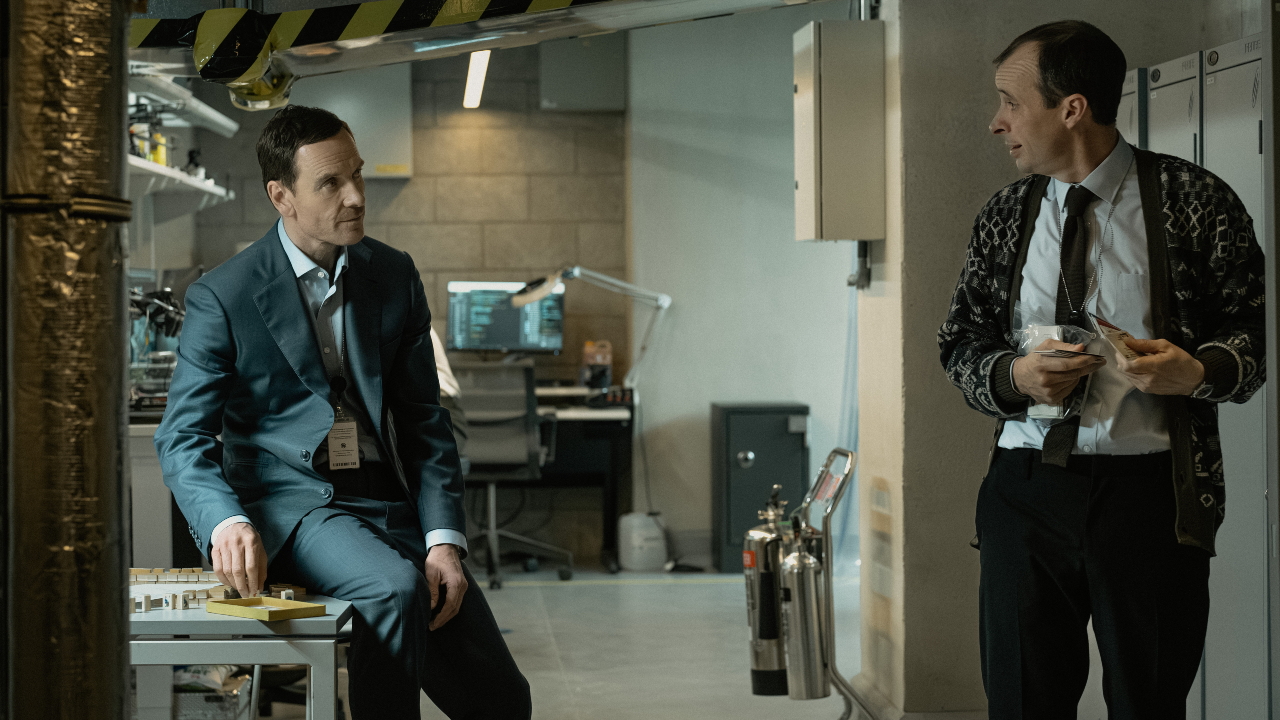When I first heard about The Agency a few months ago, I made sure to watch the Michael Fassbender spy thriller as soon as it became available with my Paramount+ with Showtime subscription. And I’m glad I did. The first two chapters in this intense and engaging series about a CIA operative named Martian (Fassbender) being pulled out of a six-year undercover operation to save one of his own were stunning.
Throughout the first two episodes of what will be a 10-part season by the time everything is said and done, the show introduces multiple plots and subplots that are interconnected in all manner of ways, creating a complex and thrilling spy story. And after watching the first two hours of one of the best Showtime series in years, I have a theory about where The Agency is going…

The First Two Episodes Of The Agency Focus Heavily On Martian Coming Back After Six Years Undercover
The primary focus of the first two episodes of The Agency, and I’m sure this will be the case for the rest of this season, focused heavily on Martian coming back from being an undercover agent after six years in the field under the alias “Paul.” The premiere episode starts with “Paul” being pulled from Eastern Africa and follows him all the way to his return to the CIA’s London office where he undergoes some serious debriefing (and surveillance by his own agency).
The physical, mental, and emotional toll of spending more than a half-decade assuming a different identity with little to no contact with anyone from your real world besides your handler (played by Katherine Waterston in this case) has to be difficult, as is the “pulling off the band-aid” effect of having to end it all in a single moment.
As Martian gets back into the swing of things, he walks this fine line between the two identities, especially when it comes to Dr. Sami Zahir (Jodie Turner-Smith), a professor with whom he’d fallen in love during his time undercover, and with whom he continues to contact in London following a bombing at her university back in Africa.

It Is Implied That Sami Zahir Is Up To Something, But I Think That's A Red Herring
One thing I kept picking up on throughout the first two episodes of The Agency is the fact that the show wants the viewer to believe that Sami Zahir is up to something. I mean, she was oddly understanding and cool-headed when Martian, as Paul, told her he was leaving and ending their romance in the first episode, and she wasn’t angry when he contacted her later in the episode. The same can be said when she shows up in London under the guise of attending classes, only for Martian to discover that she went the first day but hasn’t attended a lecture since.
All of these factors had me thinking that Sami either had something to do with the massive explosion at her university in Ethiopia or was a spy from the CIA or another agency. But I’ve watched so many great spy movies and shows over the years, and I’ve learned that Occam's razor doesn’t really work in the genre. Instead, I’m starting to think this is a red herring to distract us from what’s really going on.

Instead, I Think Martian Is Dealing With A Mental Breakdown After Years Of Having To Live Undercover
So, what’s really going on, or what do I think is going on? Well, I have a theory that Martian, Paul, or whatever his real name might be, is dealing with a mental breakdown after years of having to live undercover and adopt a new identity. Six years! For six years, Michael Fassbender’s character was living in a painstakingly crafted reality where things aren’t always how they seem and one where he’s lost touch with the man he used to be.
I get it, all spies, spooks, and covert agents have trust issues and tend to go out of their way to make sure they aren’t being watched, followed, or spied on, but in the first two hours of The Agency, Martian takes it to extreme lengths. And then you have the sudden arrival of Dr. Rachel Blake (Harriet Sansom Harris), a CIA psychologist who just so happens to arrive at the London bureau to look into the mental states of the agents just as Martian comes back home. The show and conventional spy wisdom have told me already that coincidences don’t really exist in this world.

There Are Multiple Instances Of Martian Withholding Information Or Being Dodgy With The CIA
Again, spies are gonna be spies, and Martian has done that throughout the first two episodes of The Agency with his dodgy behavior when dealing with his superiors at the CIA. Whether he’s withholding information from literally everyone or going out of his way to lose his fellow CIA agents who are following him upon returning from his undercover work, he’s not making himself look like the most honest or trustworthy person.
I’m pretty certain that all of these gaps will be filled in over the course of the next eight episodes (or the second season now that Deadline is reporting that a second season is on the way), but I can’t help but think Martian is not just being overly cautious, but instead holding something back just like his stellar hitman in David Fincher's The Killer.

I Think Martian Is Either Hallucinating Events Or Legitimately Working With The Enemy Now
All of that said, I think that Martian is doing one of two things (or maybe both) – he’s either having a severe mental breakdown and experiencing some kind of post-traumatic stress disorder and hallucinating events, or he’s legitimately working with the enemy now. Throughout the show so far, there’s been all this talk of double agents, and there was an incredibly intense scene in the second episode where Martian tries to figure out if one of his fellow spies has been working for the Russians.
It has to be something, right? The final scene in the second episode shows Martian in a hospital bed looking worse for wear, and I can’t figure out if it’s because he’s been beaten up by someone (he has what looks to be a black eye) or if he’s been forced to undergo treatment for a psychotic break or exhaustion. I guess I’ll have to keep watching.
And with The Agency going well into the early weeks of the 2025 TV schedule, I have a feeling this is just the beginning.

